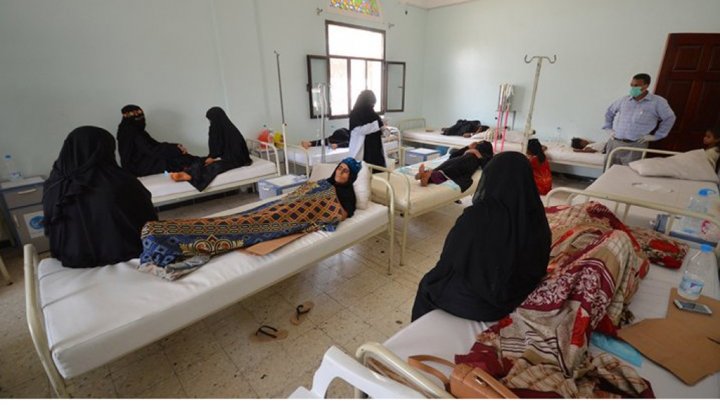Oxfam Warns of Huge Cholera Spike in Yemen’s North Governorates
YemenExtra
Oxfam International said on Tuesday that Yemen is currently suffering from a forgotten cholera crisis, and warned of the high number of people infected with the disease with the approaching rainy season next April, while health care systems are on the verge of collapse.
The organization said, in a statement, that the outbreak of the epidemic last year is the second ever on a global scale, and cases are still increasing, referring to the announcement of a high cholera rate in Sanaa, Hajjah, Hodeidah, Taiz and Dhamar since 2017.
It noted that more than 56,000 suspected cases have already been recorded in the first seven weeks of 2020, roughly equal to the same period last year. “The number of cases of cholera in 2019 was the second-largest ever recorded in a country in a single year, surpassed only by the numbers in Yemen in 2017,” it added.
The organization confirmed that the prolonged, consistent nature of new cases over the last 14 months shows the disease is still rampant in Yemen.
“The outlook is bleak for people in Yemen with cholera continuing at similar levels to last year and the rainy season likely to see thousands of more people infected,” Muhsin Siddiquey, Oxfam’s Yemen Country Director said. “This is a health crisis hiding in plain sight. It’s shocking that this ongoing crisis is getting so little attention.
“A lack of clean water and food has left many people weak and vulnerable to disease, and yet aid agencies are struggling to reach those most in need because of access constraints imposed by all sides,” Siddiquey added.
“We need urgent action from the international community to ensure safe, secure and unimpeded access for humanitarian aid and to bring the parties together to agree on a nationwide ceasefire.”
The number of deaths from cholera in 2019 dropped to 1025 – less than half the number of fatalities in 2017. But efforts to definitively beat the disease have been massively undermined by the war, which has decimated health, water and sanitation systems.
Medical supplies are in chronically short supply and only around half the health facilities in Yemen are fully functioning. Fluctuating exchange rates have pushed up the price of diesel, in turn increasing the price of trucking clean water to parts of the country where groundwater is unavailable. More than 17 million people struggle to get clean water.
“The humanitarian crisis in Yemen is entirely man-made and those who continue to arm all sides in this war bear responsibility for its devastating consequences,” Siddiquey said.

